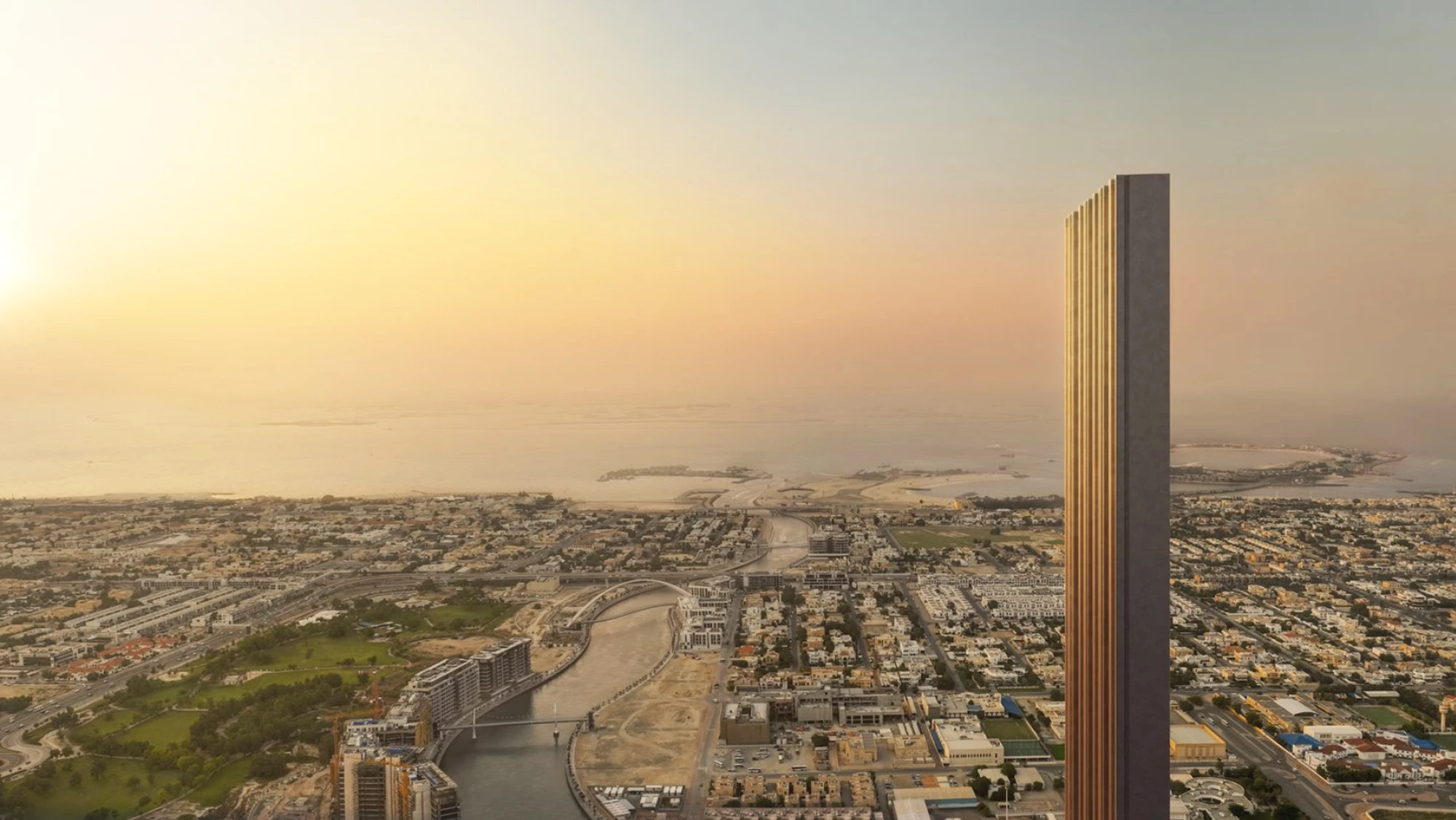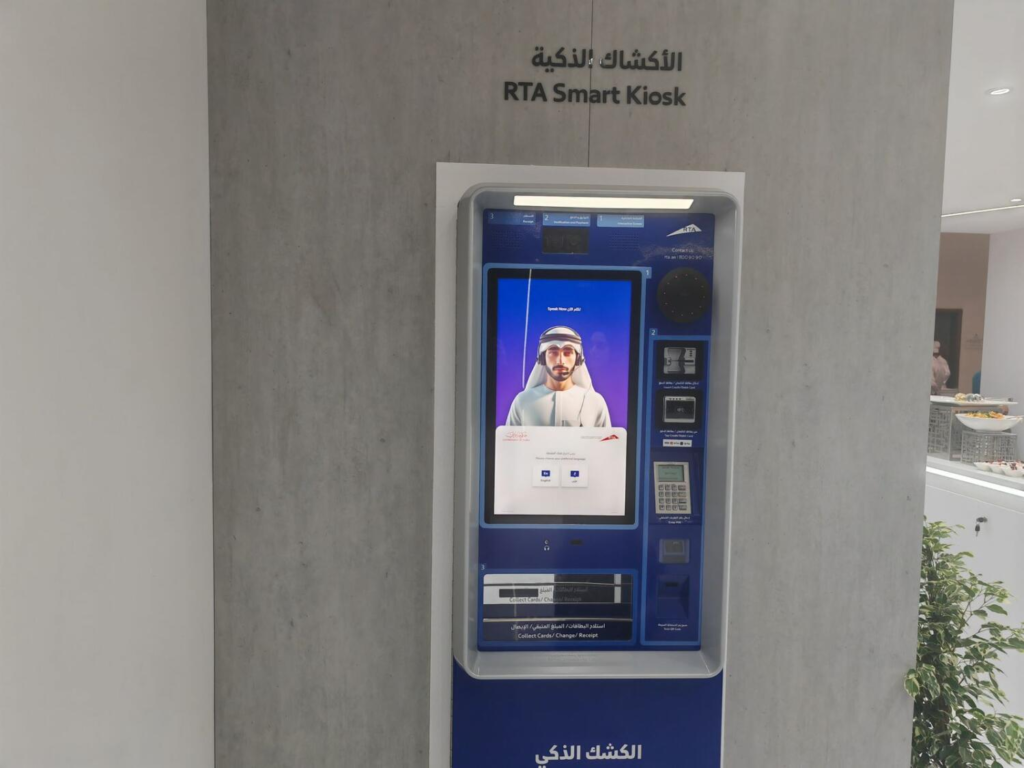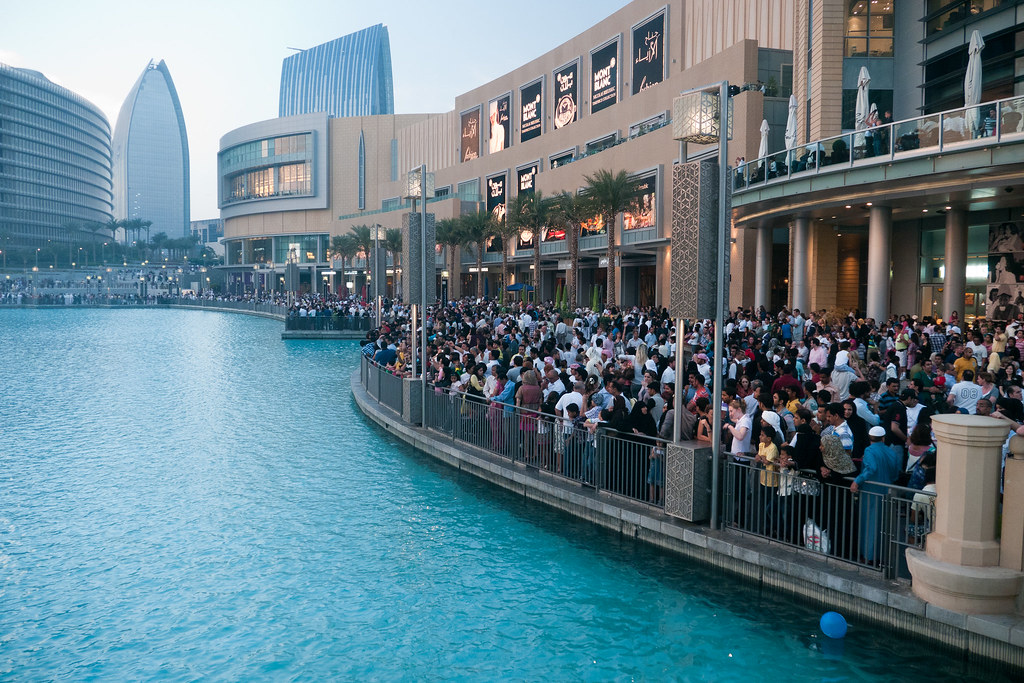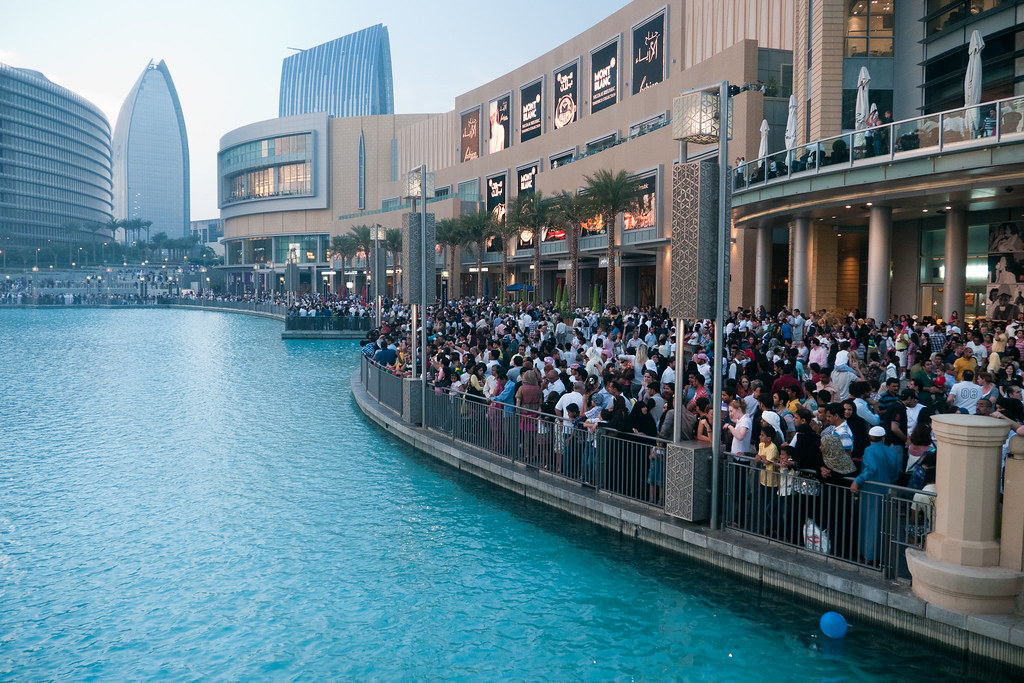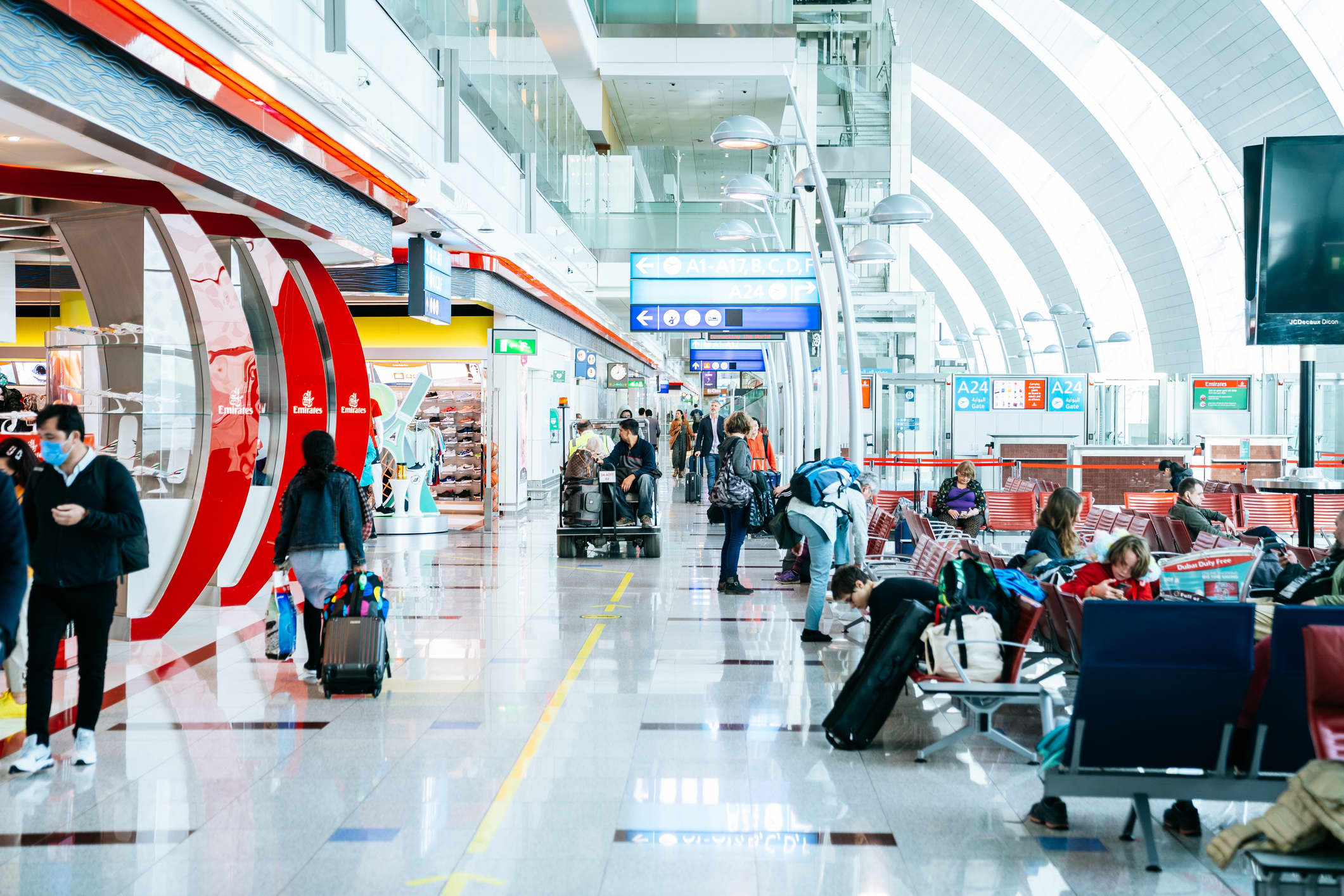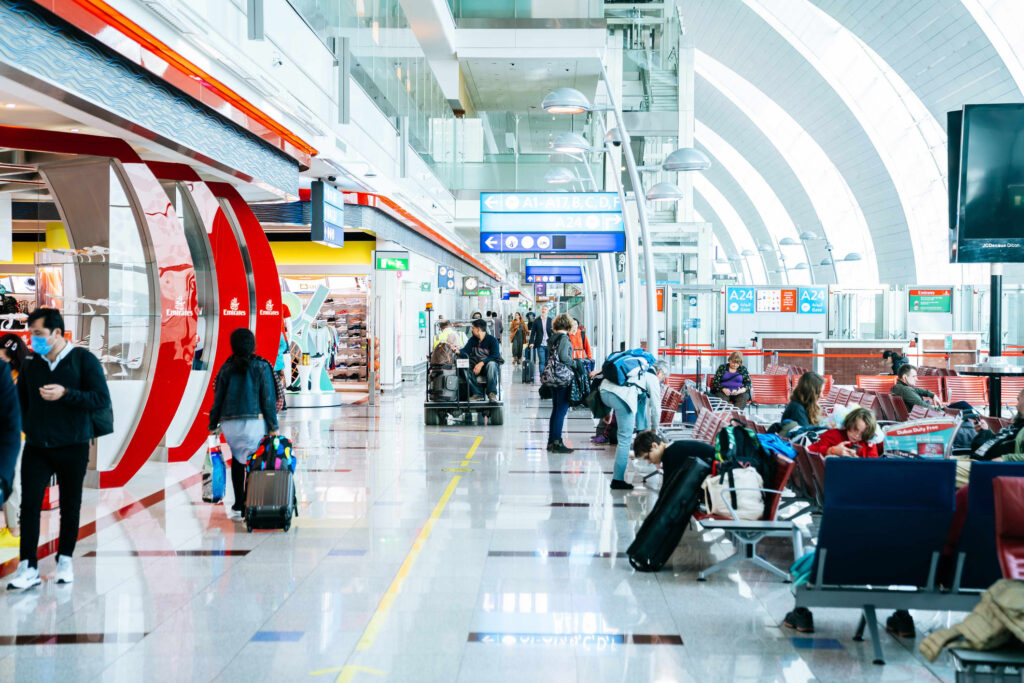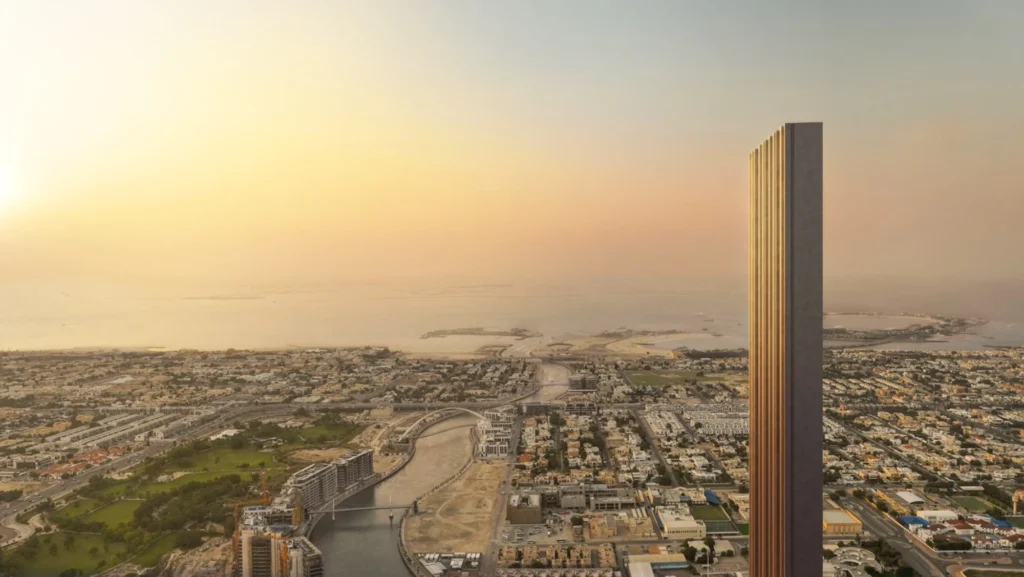
Dubai is set to unveil yet another striking piece of architecture with the announcement of the “unusually narrow” Muraba Veil skyscraper. Developed by Dubai property firm Muraba and designed by the Spanish architecture firm RCR Arquitectes, the tower will soar to 73 storeys and reach a height of 380 meters.
What makes this skyscraper particularly eye-catching is its slender width of just 22.5 meters, equivalent to the size of a single apartment. The Muraba Veil will house 131 exclusive residences, offering a range from two-bedroom to five-bedroom units, along with an array of amenities including a wellness spa, restaurant, gallery, padel court, and a private cinema.
Prices for these luxurious flats will start at Dhs18 million. In their statement regarding the building, designers noted that it will rise elegantly above the dunes of Dubai, creating a striking visual contrast amidst the city’s architectural landscape.
Described as “awe-inspiring yet understated,” the Muraba Veil will present a breathtaking spectacle, enhancing Dubai’s already vibrant skyline. The building features a “Veil” crafted from bespoke stainless steel mesh, which is porous and responsive, allowing it to reflect the varying shades of the sky while diminishing the structure’s visual impact.
The design emphasizes a narrow profile achieved through cutting-edge engineering, drawing inspiration from centuries-old domestic architecture that prioritizes human needs for refuge, privacy, and a connection to nature. The interiors will reflect traditional Arabian aesthetics, incorporating shade and greenery that leads to an inner courtyard.
Each of the 131 residences will occupy the entire width of the building, ensuring deep, spacious rooms that provide protection from external heat and ample relaxation space. The skyscraper will be strategically located along Sheikh Zayed Road, offering stunning views of the iconic Burj Khalifa.
While no completion date has been announced yet, Muraba and RCR Arquitectes are committed to taking their time to ensure the project meets their high standards. Rafael Aranda, Founder of RCR Arquitectes, emphasized the importance of designing buildings that resonate with the local culture and environment, stating, “We are passionate about ensuring our buildings are responsive to the place, that they belong to the site and the native landscape where they are situated.”


